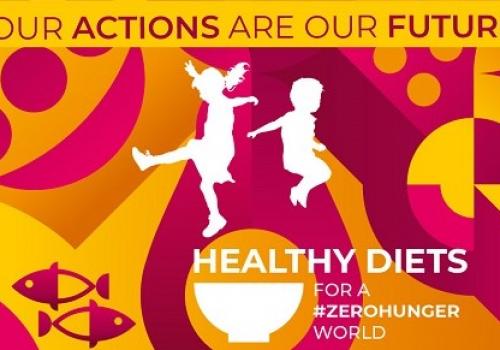Today, 16th October, 2019marks the World Food Day (WFD). The day was set by the United Nations General Assembly in honor of the founding of the Food and Agriculture Organization of the United Nations (FAO) in 1945, as an organization to deal with global food and agricultural issues, with a focus on global physical availability of food and agricultural development after the World War II in 1943.
The World Food Day was proclaimed by the Conference of the Food Agriculture Organisation, and is commemorated every year to heighten public awareness of the global problem of food absence, scarcity and to strengthen solidarity in the struggle against hunger, malnutrition and poverty. Observance of the day was endorsed in 1980 by the General Assembly, recognizing that "food is a requisite for human survival and well-being and a fundamental human right" (resolution 35/70 of 5 December 1980).
As we commemorate this year’s World Food Day, we must all collectively strive for a hunger free world where everyone, everywhere, has access to food. We must put our efforts together, using our national and regional policies, plans and strategies to address poverty and hunger. Impacts of climate change to food security should not be underestimated, we must therefore, put in place measures to address the devastating impacts of climate change that threaten to undermine all the gains made so far.
The theme for this year’s World Food Day, Our Actions are our Future, Healthy Diets for a Zero Hunger World”, is not only timely but also aligned with the aspirations of the Southern African Development Community (SADC) and it comes at a time when there are concerns of disease burden related to unhealthy diets and lifestyles.
A healthy diet is essential for maximum productivity to enable us contribute to the socio-economic development of our communities, societies and the world at large, and as such, the importance of healthy foods cannot be over emphasised. Africa is fortunate to be home to a wide variety of indigenous crops including pulses, cereals, fruits and vegetables, which contain essential nutrients for healthy and productive lives.
However, despite the abundance of a variety of healthy foods, many people still go to bed without food, let alone have a healthy diet. Statistics show that the prevalence of overweight among children and adolescents, from infancy to the age of 19, is on the increase in the SADC region, ranging from 3.3% to over 13%. In many countries, obesity exists alongside childhood undernutrition, creating a double burden of malnutrition.
This day should remind us of our obligations and commitment to Sustainable Development Goal 2 to end hunger by 2030. We must take stock of the strides we have made to this commitment and assess whether by 2030 we will manage to achieve food security and improved nutrition and end all forms of malnutrition. SADC believes that healthy food is a basic right for all people and therefore, call upon the international community to strive to ensure a healthy diet and a hunger-free society.

